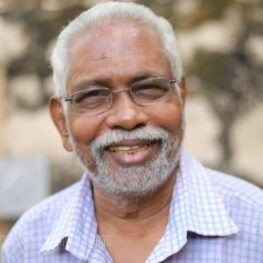Introduction:
The Nelson Mandela Chair for Afro-Asian Studies seeks to commemorate the memory of Nelson Mandela by creating a dynamic academic institution that advances knowledge, understanding, and peacebuilding initiatives between Africa – Asia, and rest of the world. By promoting research, education, dialogue, and advocacy, the Chair will contribute to a more peaceful and interconnected world, inspired by the values and principles exemplified by Nelson Mandela throughout his life.
Also, the Nelson Mandela Chair for Afro-Asian Studies is envisioned as an academic institution dedicated to promoting research, education, and dialogue on the historical, cultural, and socio-political connections between Africa and Asia, while emphasizing the principles of peace, justice, and reconciliation that were championed by Nelson Mandela. The Chair will serve as a platform for fostering understanding, fostering collaboration, and advancing peaceful coexistence between the two regions, while honouring the memory and legacy of Nelson Mandela, a global icon of peace and human rights.
Vision:
The Nelson Mandela Chair for Afro-Asian Studies envisions a world where the historical, cultural, and socio-political connections between Africa and Asia are deeply understood, celebrated, and leveraged to foster peace, reconciliation, and sustainable development. Inspired by the legacy of Nelson Mandela, our vision is to be a global academic chair that promotes interdisciplinary research, education, and dialogue, fostering mutual understanding, collaboration, and social justice between the two regions, and promoting peacebuilding in the world.
Objectives:
Research and Scholarship: The Chair aims to facilitate rigorous research on the historical, economic, political, and cultural dynamics of Afro-Asian interactions, identifying commonalities, challenges, and opportunities for cooperation and mutual understanding. It will support interdisciplinary research projects, publications, and conferences, generating knowledge that contributes to academic scholarship and informs policy debates.
Education and Capacity Building: The Chair will provide educational programs, workshops, and training opportunities to students, researchers, policymakers, and civil society actors, fostering a deeper understanding of Afro-Asian relations and peacebuilding strategies. It will encourage the integration of Afro-Asian studies into academic curricula, ensuring that future generations are equipped with the necessary knowledge and skills to contribute to peace and reconciliation efforts.
Dialogue and Exchange: The Chair will serve as a hub for intellectual exchange, promoting dialogue and fostering connections between scholars, practitioners, policymakers, and civil society actors from Africa and Asia. It will organize seminars, conferences, and public lectures, creating spaces for constructive discussions, sharing of experiences, and the exchange of ideas, ultimately leading to enhanced mutual understanding and collaboration.
Peacebuilding and Reconciliation: The Chair will actively engage in peacebuilding initiatives, supporting projects that promote conflict resolution, reconciliation, and social cohesion in both Africa and Asia. It will facilitate the sharing of best practices, lessons learned, and successful models of peacebuilding, drawing upon the experiences of Nelson Mandela and other peace advocates, with the aim of inspiring and empowering individuals and communities to work towards sustainable peace.
Current Chair Professor: Prof Bernard Haykel
 Prof Bernard Haykel is a Professor of Near Eastern Studies and the Director of Institute for Transregional Study of the Contemporary Middle East, at Princeton University. His research is concerned with the political and social tensions that arise from questions about religious identity and authority. Much of his teaching and research lies at the juncture of the intellectual, political, and social history of the Middle East with particular emphasis on the countries of the Arabian Peninsula.
Prof Bernard Haykel is a Professor of Near Eastern Studies and the Director of Institute for Transregional Study of the Contemporary Middle East, at Princeton University. His research is concerned with the political and social tensions that arise from questions about religious identity and authority. Much of his teaching and research lies at the juncture of the intellectual, political, and social history of the Middle East with particular emphasis on the countries of the Arabian Peninsula.
Prof Haykel also have a side interest in the effects of energy resources and rents on politics and society. An essential part of such works concerns the reception of reformist ideas at present and analysis of the Salafi heritage in contemporary debates among Sunnis as well as the Zaydi heritage among Shi`is. Another concern pertains to the history and politics of the countries of the Arabian Peninsula, and Saudi Arabia in particular.
Previous Chair Professor: Prof M Kunhaman
 Prof M Kunhaman is a profound scholar and well-known teacher of economics. He was a professor at the Tata Institute of Social Sciences, Tuljapur Campus, until 2019. He was also a professor of economics at the University of Kerala for almost three decades. He is one of the early critiques of the Kerala Development Model from a Subaltern perspective. He is the author of many influential books, including Development of Tribal Economy, Economic Development and Social Change (1990, University of Kerala), State Level Planning in India (1994, Classical Publications), and Globalisation: A Subaltern Perspective (2002, Centre for Subaltern Studies). His memoir, Ethiru (2020, D C Books) was a best seller.
Prof M Kunhaman is a profound scholar and well-known teacher of economics. He was a professor at the Tata Institute of Social Sciences, Tuljapur Campus, until 2019. He was also a professor of economics at the University of Kerala for almost three decades. He is one of the early critiques of the Kerala Development Model from a Subaltern perspective. He is the author of many influential books, including Development of Tribal Economy, Economic Development and Social Change (1990, University of Kerala), State Level Planning in India (1994, Classical Publications), and Globalisation: A Subaltern Perspective (2002, Centre for Subaltern Studies). His memoir, Ethiru (2020, D C Books) was a best seller.